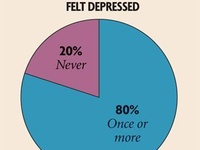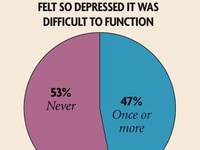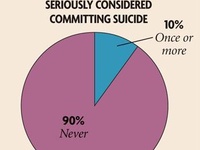Some student mental health advocates are skeptical that the committee will effect change to the system where the two earlier committees have failed.
But Hyman says the need for the new task force comes from an increase in student demand for help, not from any past failures.
“What’s happened is prevalence of mental disorders on campus has continued to grow, and it’s basically swamped the efforts that were made,” says Hyman, the former director of the National Institute of Mental Health.
He hypothesizes that the high pressure students face before arriving at college, an increase in the number of admitted students with mental health problems and a national destigmatization of therapy are causing more students to seek mental health care.
About 39 percent of college students nationwide reported feeling so depressed it was difficult to function at least once in the previous year, according to a survey conducted by the American College Health Association last spring.
Roughly 19,000 students from 33 colleges participated in that survey.
Around 9 percent said they had seriously considered attempting suicide, and 1.5 percent said they had attempted suicide.
While many colleges currently face similar problems, students and leading mental health experts say there is no reason why Harvard should not be able to better cope with the increased need.
“You have many of the best people,” says Dr. Clarice J. Kestenbaum, former president of the American Academy of Child and Adolescent Psychiatry, who says she knows many of those involved with mental health care at Harvard.
“These things should not be that difficult to address,” she says. “You would think at Harvard there would be the best effort to have the best system possible.”
—Anne K. Kofol contributed to the reporting of this story.
—Staff writer Katharine A. Kaplan can be reached at kkaplan@fas.harvard.edu.











